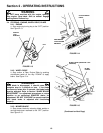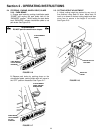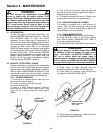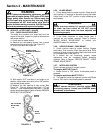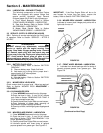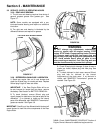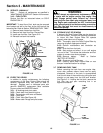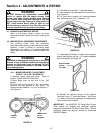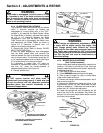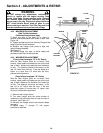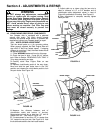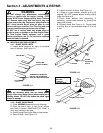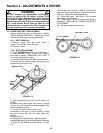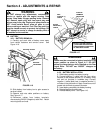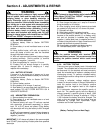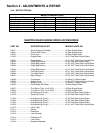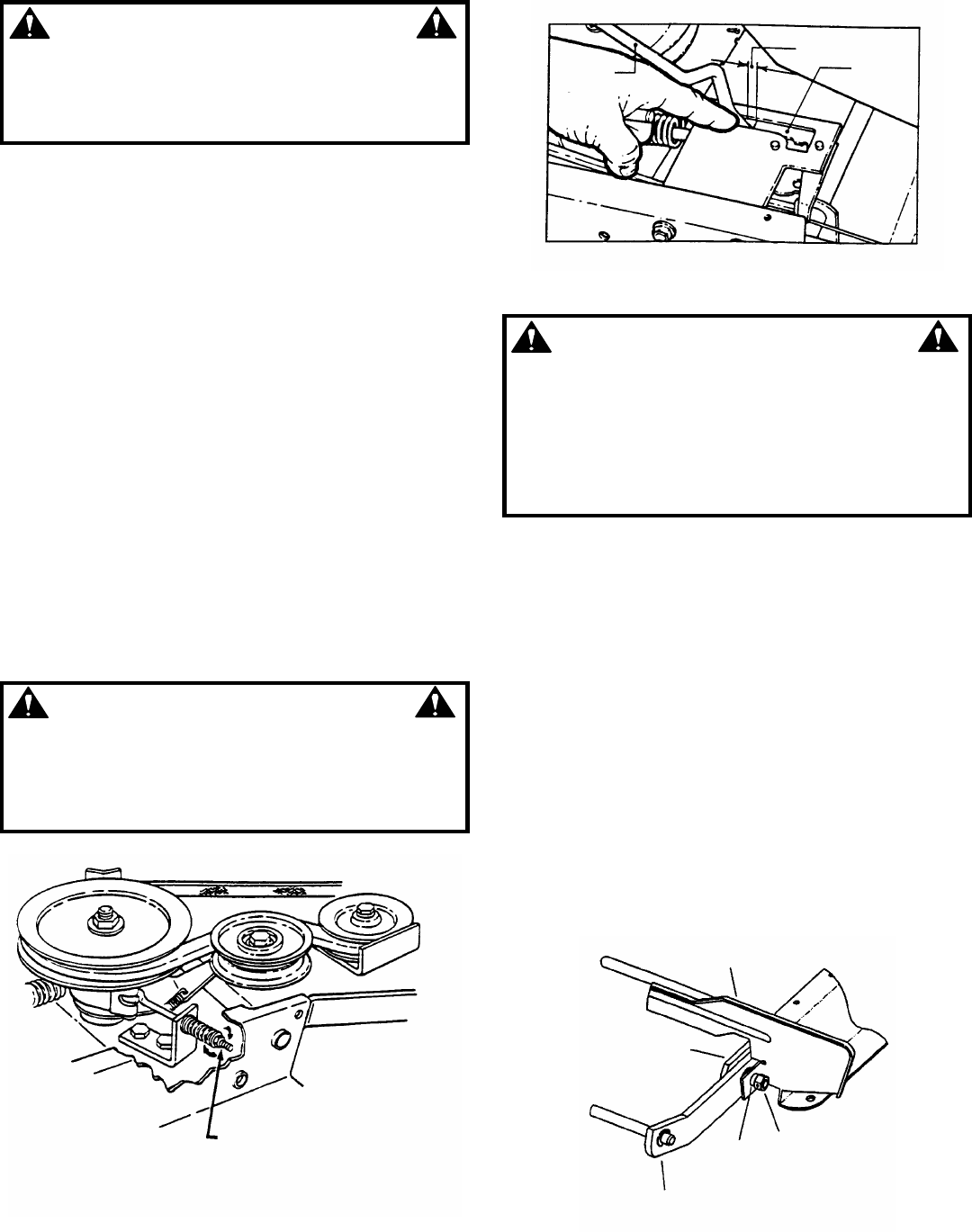
18
Section 4 - ADJUSTMENTS & REPAIR
WARNING
Once blade is disengaged it should come to a stop
in 3 seconds or less. If the blade continues to rotate
after 3 seconds the blade brake must be adjusted.
DO NOT continue to operate the machine if the blade
brake is not operating properly.
4.2.2. BLADE BRAKE ADJUSTMENT
The automatic Blade Brake should stop the blades
within 3 seconds anytime the blades are
disengaged by moving blade lever to the "OFF"
position or by releasing the Blade Pedals. When
the Blade Brake is properly adjusted there should
be 1/8" to 1/4" clearance between the Blade
Engagement Lever and the back of the Latch
Plate. Check this by disengaging the Blade Lever
and depressing the Blade Pedals as shown in
Figure 4.2. If clearance is greater than 1/4"
perform the following adjustment.
1. Remove Belt Cover. Refer to Section “BLADE
BELT COVER REMOVAL”.
2. With the blade engagement lever disengaged,
hold the blade pedals down and measure the
distance between the front of the blade lever and the
rear of the latch plate. The dimension should be 1/8"
to 1/4" clearance between lever and plate. See Figure
4.5. If the dimension is incorrect go to step 3.
3. If dimension is greater than 1/4", rotate nut
clockwise to increase brake tension. If dimension is
less than 1/8", rotate nut counter-clockwise to
decrease brake tension. See Figure 4.4.
4. Reinstall spindle cover.
WARNING
DO NOT operate machine until blade brake is
adjusted and functioning properly. If blade stop time
can not be achieved with the adjustment procedure
described above, take machine immediately to an
authorized Snapper dealer.
FIGURE 4.4
FIGURE 4.5
WARNING
DO NOT attempt any adjustments, maintenance, service
or repairs with the engine running. Stop engine. Stop
blade. Engage parking brake. Remove key. Remove
spark plug wire from spark plug and secure away from
plug. Engine and components are HOT. Avoid serious
burns, allow all parts to cool before working on machine.
Fuel Filler Cap and Vent must be closed securely to
prevent fuel spillage.
4.2.3. MOWER DECK ADJUSTMENT
(Side-To-Side Levelness)
Before making deck leveling adjustments, check the tire
pressure. Front tires 12 psi, rear tires 12 psi. If tires are
properly inflated and mowing is still uneven, adjust side-
to-side deck levelness.
1. Place Rider on a smooth level surface.
2. Follow WARNING statement found on this page.
3. Place a piece of angle iron, pipe, or similar object
under center of deck at the rear.
4. Remove rear hanger chains and allow center, rear of
deck to rest on angle iron.
5. Measure the distance from blade tips to floor. If the
measurement is within 1/8” from side-to-side, the deck
attitude is satisfactory. If difference from side-to-side is
greater than 1/8”, continue with adjustment.
6. Loosen the carriage bolt and nut retaining the left
side of the front lift arm and adjuster. Only loosen the
bolt and nut to the point where some tension remains
but lift arm can be moved.
FIGURE 4.6
ROTATE NUT CLOCKWISE TO
INCREASE BRAKE TENSION
ROTATE NUT COUNTER CLOCKWISE TO
DECREASE BRAKE TENSION
BLADE
LEVER
1/8” TO 1/4”
LATCH
PLATE
BLADE PEDAL
CARRIAGE BOLT
(not shown)
FRONT LIFT ARM
NUT
SPACER



